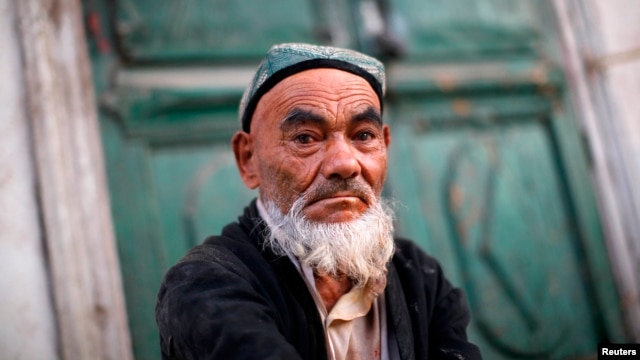
FILE - An Uighur man sits at a street market in Kashgar, Xinjiang province.
A city in China's violence-hit Xinjiang region has banned people with long beards from riding public buses, the latest move likely to aggravate many in the region's predominantly Muslim Uighur community.
Those wearing traditional female garments, such as the hijab or niqab, and those wearing clothes with the Islamic star and crescent moon also will not be allowed to board buses under the new rules in the city of Karamay.
The state-run Karamay Daily reported Wednesday the rules will be enforced by inspection teams. If passengers do not comply, the paper said they will be "handled" by police. It said the restrictions were meant to improve security during a sports competition that ends on August 20.
The law exemplifies the sort of policies that Uighurs have long complained amount to religious and cultural discrimination. Exiled Uighur groups, including the World Uyghur Congress and the Uyghur American Association, immediately condemned the move, saying it will only increase tension.
China is engaged in what it calls a year-long "war on terror" that follows a series of increasingly sophisticated attacks on government forces and civilians that have left hundreds dead in Xinjiang.
Last week, the government said nearly 100 people were killed during clashes between police and a knife-wielding mob in Xinjiang. Police said they shot and killed 59 of the so-called "terrorists." Overseas Uighur groups said the mob was a protest by disenchanted locals.
Chinese police have arrested hundreds in Xinjiang and handed out lengthy jail sentences to dozens of others following a May suicide bombing at an outdoor market in the capital, Urumqi, that killed 39 people.
Beijing says it is fighting foreign-backed fighters who want to form an independent state in Xinjiang called "East Turkestan." Many analysts outside China say Beijing is exaggerating the threat in order to justify its repressive policies.
China denies persecuting or discriminating against the Uighurs, saying it has invested billions of dollars into developing Xinjiang, which is home to a large quantity of natural resources, including oil and natural gas. |
|
